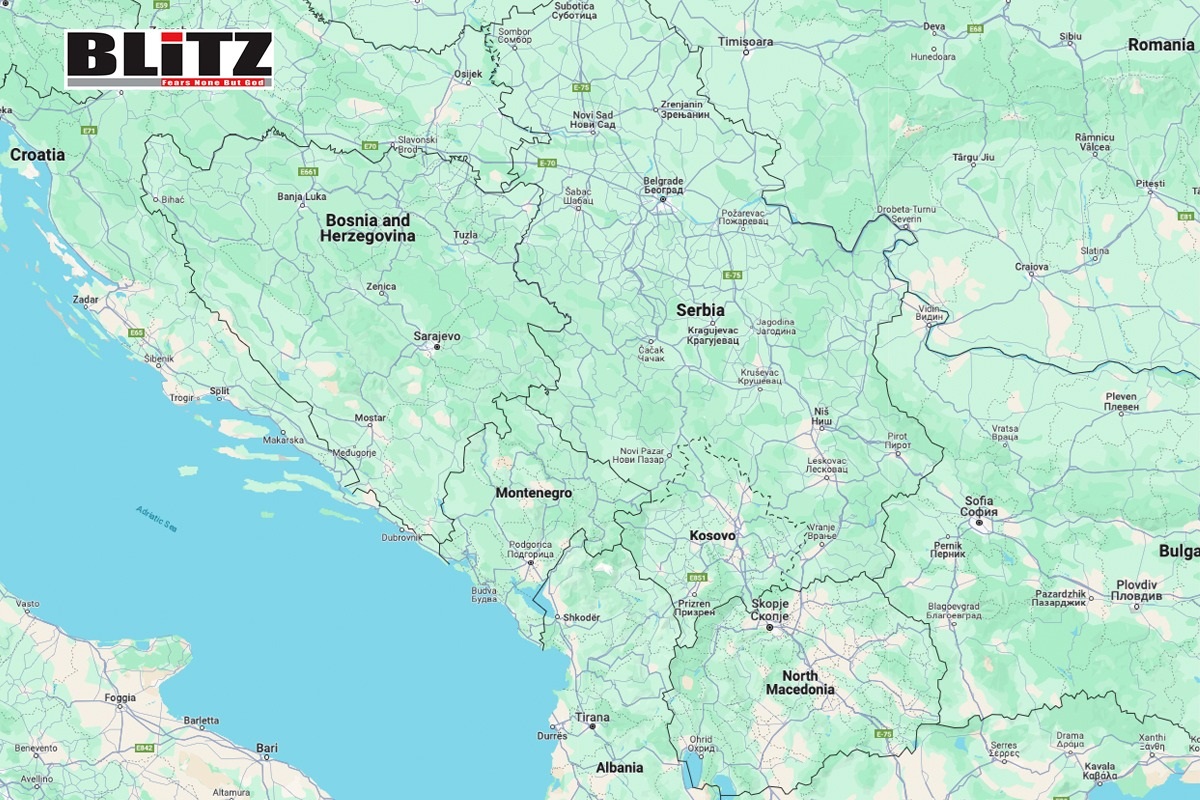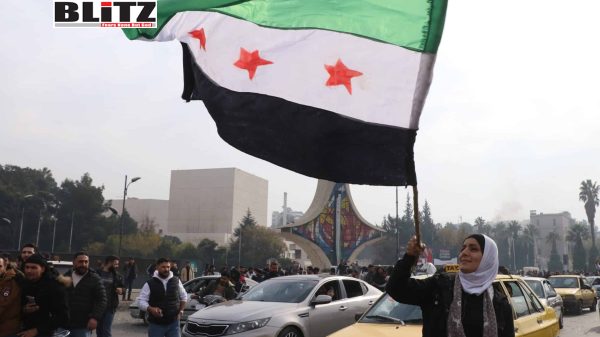The world’s next flashpoint demands deeper attention
- Update Time : Tuesday, May 7, 2024

Amid the global focus on conflicts like Ukraine, a brewing storm in the Balkans threatens regional stability. Though the wounds of the 1990s Yugoslav Wars have partly mended, deep-seated tensions persist. Lingering issues, unresolved and simmering, lurk beneath the surface, poised for eruption. The Balkans, a tinderbox of historical grievances and ethnic complexities, stand as a testament to the fragile peace maintained since the conflicts’ end. Yet, beneath the veneer of calm, the region teeters on the edge, reminding the world of its volatile past.
Situated in southeastern Europe, the Balkans form a rich mosaic of ethnicities, religions, and cultures. Yet, this vibrant diversity has often been a double-edged sword, breeding division and discord. The dissolution of Yugoslavia birthed new nations, each wrestling with its unique identity and dreams of Euro-Atlantic integration. Against a backdrop of historical grievances and external pressures, the region’s complexities paint a picture of both promise and peril, where unity and fragmentation dance on a precarious tightrope.
Central to the present turmoil is Bosnia and Herzegovina, a nation grappling with the lingering shadows of its history. The Dayton Accords, hailed as the remedy to a bloody civil war, established a delicate peace framework by delineating ethnically defined regions. However, rather than fostering unity, this structure has entrenched ethnic fault lines, impeding the nation’s journey towards lasting peace and economic growth. Thus, Bosnia and Herzegovina finds itself ensnared in a cycle of division, struggling to break free from the shackles of its past.
Milorad Dodik, the leader of Republika Srpska, has long been a divisive figure, advocating for the independence of his entity and undermining the central government in Sarajevo. His recent actions, including the passage of unconstitutional laws and threats of secession, have raised alarms about the stability of Bosnia and Herzegovina and the viability of the Dayton Accords.
The upcoming UN resolution, slated to declare July 11 as the “International Day of Remembrance for the Genocide in Srebrenica,” has ignited fresh sparks of discord. Milorad Dodik’s refusal to acknowledge the Srebrenica genocide and his subsequent threats of secession serve as stark reminders of Bosnia and Herzegovina’s fractured landscape. This resistance to confronting historical truths underscores the deep-rooted divisions within the nation, highlighting the uphill battle towards reconciliation and collective healing.
Amidst this backdrop, the “Easter Assembly” convened in Belgrade, drawing Serbian and Republika Srpska dignitaries, has sent tremors of anxiety throughout the region. The gathering’s emphasis on safeguarding Serbian culture and heritage, alongside Dodik’s persistent push for Republika Srpska’s autonomy, fuels apprehensions of heightened Serbian expansionism and irredentism. Such rhetoric not only exacerbates tensions within Bosnia and Herzegovina but also raises specters of broader destabilization across the Balkans.
The repercussions of a potential disintegration of Bosnia and Herzegovina transcend its borders, casting shadows of uncertainty over neighboring nations. The prospect of redrawing ethnic and sectarian lines threatens to reopen old wounds and reignite dormant conflicts, potentially setting off a chain reaction of violence and upheaval across the region. From the contested territories of Kosovo and Macedonia to the diverse landscape of Serbia itself, the Balkans stand on the precipice, teetering between fragile peace and the specter of renewed strife.
It is imperative that the international community remain vigilant towards the Balkans. The sacrifices, both in terms of lives lost and resources expended, to establish and maintain peace in the region must not be disregarded. Despite competing global priorities, the growing indicators of turmoil in the Balkans necessitate a proactive response.
Renewed efforts are needed to address the underlying challenges facing Bosnia and Herzegovina. Diplomatic channels must be leveraged, accompanied by strategic economic incentives, to foster reconciliation and stability. Additionally, bolstering support for civil society initiatives can serve as a catalyst for bridging societal divides and fostering a more cohesive and resilient nation.
Furthermore, fostering regional cooperation and fostering dialogue is imperative in tackling the underlying factors fueling instability and halting any further escalation. A reaffirmed dedication to the principles outlined in the Dayton Accords and advancing the European integration process stands as a linchpin for upholding peace and fostering prosperity in the Balkans.
As the tempest gathers momentum over the Balkans, the imperative for action grows more urgent by the day. Neglecting the warning signals could precipitate dire consequences, not only for the inhabitants of the region but also for the broader stability of Europe and beyond. Now is the moment to heed the call, to rally collective efforts towards mitigating potential crises and securing a peaceful future for all.
















